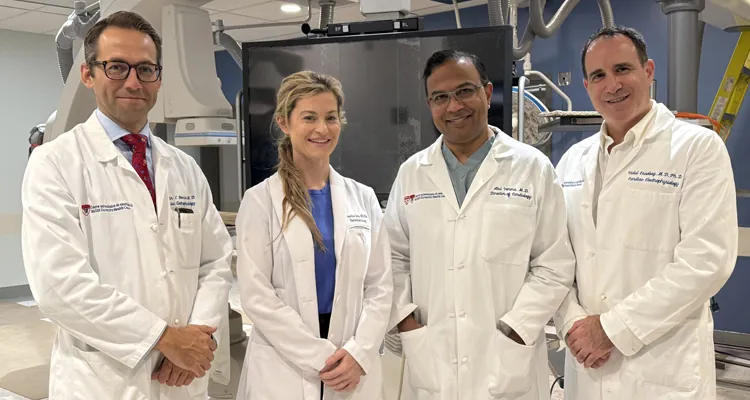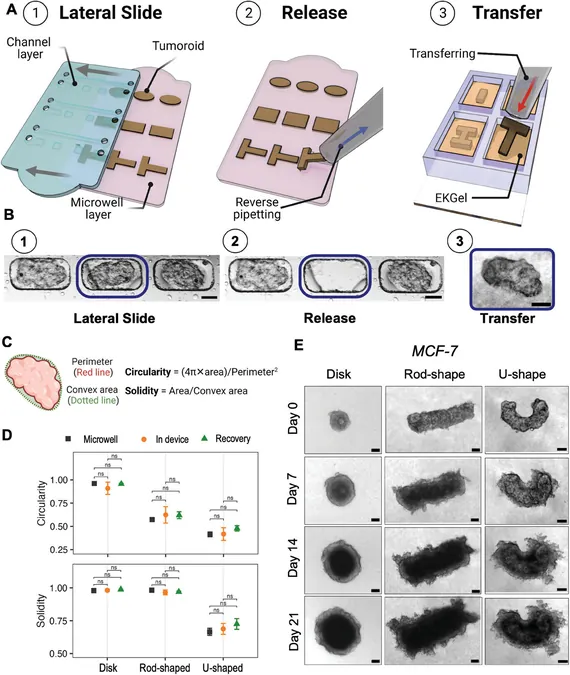
New Cardiac Centre at MUHC Promises Hope for Heart Disease Patients
2024-11-09
Author: Jacques
In Canada, the battle against heart disease is a matter of life and death, with over 200 Canadians losing their lives daily to heart-related issues. This staggering statistic amounts to more than 90,000 lives lost annually—the impact often cascading through families and communities. As heart disease continues to be the leading cause of death in the country, the urgent need for advanced cardiac care becomes increasingly critical, particularly as our aging population grapples with sedentary habits and related health crises.
Amidst this growing health emergency, the McGill University Health Centre (MUHC) at the Glen site is proud to unveil a groundbreaking electrophysiology (EP) laboratory. This facility is equipped with cutting-edge technology designed to diagnose and treat complex arrhythmias or irregular heartbeats. The establishment of this state-of-the-art lab was made possible through the immense support of generous donors to the MUHC Foundation, who collectively contributed $6 million to this transformative initiative.
Understanding Electrophysiology: The Heart’s Electrical System
Electrophysiology is a critical field within cardiology, focusing on the heart's electrical pathways. Every heartbeat is regulated by tiny electrical impulses, and disruptions in this rhythm can lead to serious outcomes, including stroke, heart failure, or sudden cardiac arrest. With advanced technology at their disposal, electrophysiologists are now able to map these electrical pathways accurately, allowing for targeted treatments such as catheter ablation—an effective procedure for correcting certain arrhythmias.
Dr. Vidal Essebag, a leading clinician scientist at the MUHC, emphasizes the importance of timely intervention; "Every second counts—the new EP lab at the Glen allows us to treat patients sooner, thereby preventing the deterioration of their conditions."
A Growing Need for Electrophysiology Treatments
Cardiovascular disease leads to more hospitalizations in Canada than any other ailment, with a remarkable 40% of heart-related patients requiring readmission due to complex care needs. The new EP lab is poised to reduce such critical delays, providing an efficient and effective way to manage these complexities.
Dr. Jacqueline Joza, who leads the Inherited Arrhythmia Service, highlights the impact of medical procedures like catheter ablation—real-time imaging allows for precise mapping of the heart, where abnormal cells can be targeted and treated, ultimately improving patients' quality of life while reducing mortality risks.
Beyond these established techniques, the MUHC is at the forefront of pioneering innovations such as pulse field ablation (PFA). Unlike traditional methods that use heat or freezing, PFA employs a non-invasive electrical energy technique that specifically targets malfunctioning heart cells while preserving surrounding tissues. Notably, MUHC is one of the only centers in the Americas collaborating with multiple companies on this cutting-edge technology.
Integrated Cardiac Care
What sets the Glen’s EP laboratory apart is its integration within a comprehensive healthcare model, providing patients with a one-stop solution for complex heart issues blended with other health concerns. For many patients with arrhythmias, other serious health conditions often coexist, making integrated care vital.
“This lab not only treats arrhythmias but also provides the multidisciplinary care necessary for our more vulnerable patients,” states Dr. Atul Verma, reinforcing the importance of this collaborative environment.
The MUHC is already attracting top expertise from across the globe, further solidifying Quebec’s reputation as a powerhouse in heart health. Dr. Martin Bernier underlines that this state-of-the-art facility is instrumental for training future cardiologists while ensuring Canada remains at the leading edge of cardiac care.
A Collective Effort for the Future of Cardiac Health
The new EP lab is not merely a facility but a testament to the community’s collaboration. It symbolizes the incredible potential that emerges when diverse talents unite with a shared mission.
"The vision of the Glen site EP lab has been a long-standing dream, and we are excited to see it finally realized. Our mission at the MUHC Foundation is to enable top-notch care for Quebecers, and this center is a shining example of our collective impact," remarks Marie-Hélène Laramée, President and CEO of the MUHC Foundation.
As the MUHC embarks on this promising new chapter in cardiac care, they invite others to join in their mission. Support for the new electrophysiology laboratory is essential, and contributions can be made through the MUHC Foundation’s campaign dedicated to enhancing cardiac health: www.muhcfoundation.com/works/fix-broken-hearts.
This innovative facility is more than hope; it's a beacon for a future where heart disease can be managed effectively, potentially saving countless lives in the process.









 Brasil (PT)
Brasil (PT)
 Canada (EN)
Canada (EN)
 Chile (ES)
Chile (ES)
 España (ES)
España (ES)
 France (FR)
France (FR)
 Hong Kong (EN)
Hong Kong (EN)
 Italia (IT)
Italia (IT)
 日本 (JA)
日本 (JA)
 Magyarország (HU)
Magyarország (HU)
 Norge (NO)
Norge (NO)
 Polska (PL)
Polska (PL)
 Schweiz (DE)
Schweiz (DE)
 Singapore (EN)
Singapore (EN)
 Sverige (SV)
Sverige (SV)
 Suomi (FI)
Suomi (FI)
 Türkiye (TR)
Türkiye (TR)